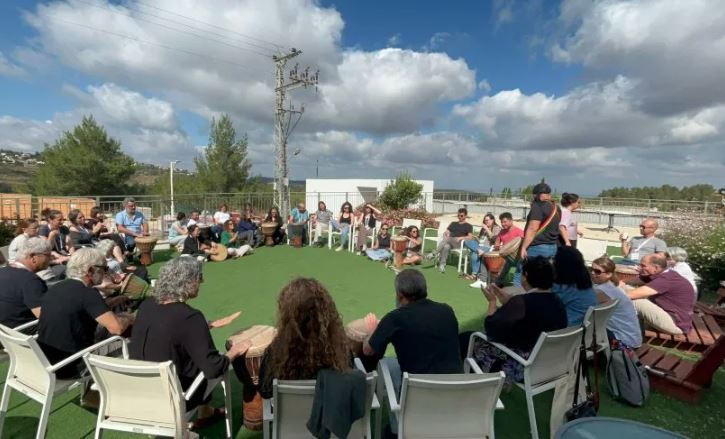As anyone active in Israel’s social change community knows, long-term planning is tough when emergencies seem to arise all the time. Yet, a vision for a clear future is the cornerstone of successful social change.
Amidst the chaos that erupted following the November election, Shatil offered a forum where members could collectively envision the question: where does the Israeli social change community want to be in 2030? The program was called “Maof” or “take flight.”

For two days in late June, Shatil brought together 70 civil society members for a summit to develop a strategic plan on how to build a broad civic coalition for equality by 2023. Participants included senior staff from NGOs in the fields of human rights, shared society, and others. The goal was to bring together leaders from different issue areas to support the cross-fertilization of ideas and build stronger networking across the social change field as a whole.
Speakers and roundtable discussions were paired with an “open space,” in which participants raised the topics they wanted to discuss and then gathered into small groups to delve deeper. Speaker topics included the vision and narratives of the future equality coalition, how to advance liberal values through work at the municipal level, the role of civil society in the protests, and more.
“It was really special to connect across different issue areas. I feel like generally networking is maintained within a specific circle, and this event was special because we were able to break out of those constrictions,” shared Ran Goldstein, the head of NIF’s new Hub for the Protection of Civic Space and former CEO of Physicians for Human Rights Israel.
Almost all seminar participants agreed there was a deep need and expressed appreciation for the opportunity to discuss network building. The power of weak ties, as presented by Moti Kelner, emphasizes how crucial our acquaintanceships are for growing innovative ideas and action. While strong ties are also useful, stepping outside your usual network connects you to new communities and thus new ideas. “Being able to grow and support networks during times of crisis is crucial for field-wide success,” explained Goldstein when discussing the relevance of the seminar to his role as director of the Hub.
“I think the most meaningful part of Maof was the open space activity,” one participant said. “The resulting partnerships covered issues from the 2023 local elections to understanding how the right wing builds their narratives. I personally am so excited to see where they go.”
Next up on the agenda for the seminar participants is executing these new project ideas. As people milled out of the seminar venue, they were also planning follow-up meetings, exchanging contact information, and carrying the long-term perspective with them as they returned to their respective organizations.
One seminar participant recounted on their way out: “Engaging in the seminar was exciting and a partial antidote to the loneliness of social change work. Being able to spend significant time with thought partners was inspiring, and I’m leaving with several ideas brewing for the future.”
At the beginning of the two days, Mickey Gitzin, director of NIF Israel, summarized concisely the precise importance of holding the seminar now, rather than waiting for the current crisis to die down. “If we exit this era of emergency as we entered it, we have not used the crisis well; this is a crucial opportunity to refine our role. Here at the New Israel Fund we strategically increased emergency grants because in times of crisis there is also innovation and we are constantly being introduced to new, creative ideas.”
